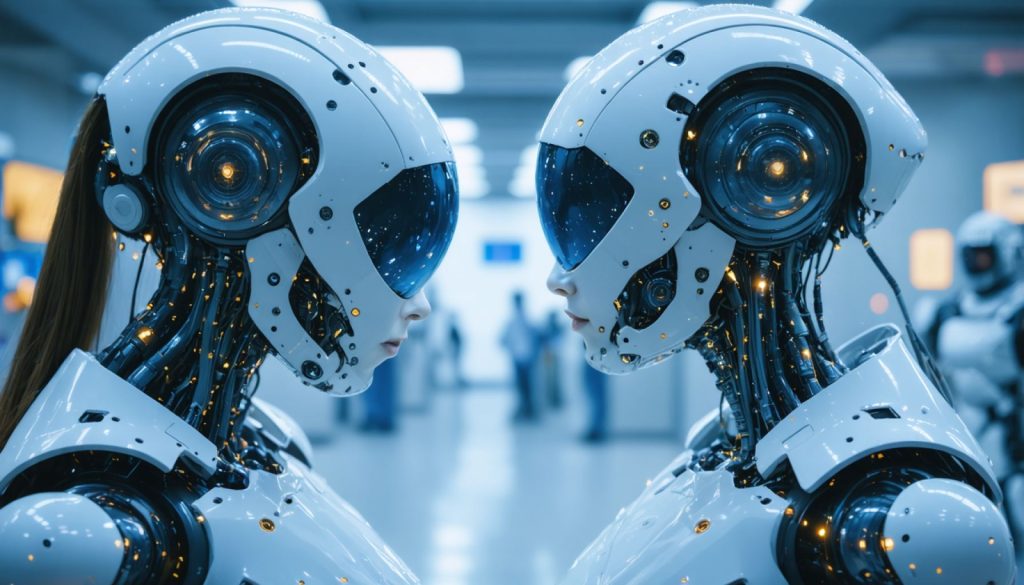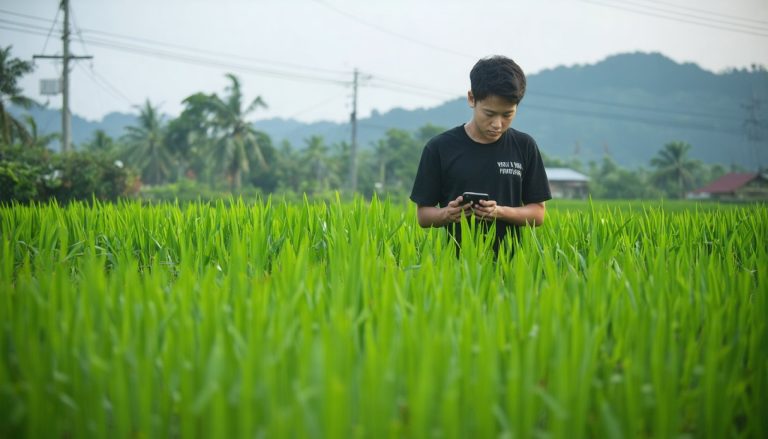
- AI is transforming industries, bringing both opportunities and concerns about job displacement.
- Bill Gates identifies coding, energy management, and biology as professions resilient to AI replacement.
- Coders are critical for developing AI, handling complex logic, debugging, and innovation, which AI cannot replicate.
- Energy experts manage intricate challenges and strategic decisions in the energy sector that demand human insight.
- Biologists utilize human intuition and creativity for groundbreaking discoveries, with AI as an assistive tool.
- The evolution of jobs continues, emphasizing human skills in problem-solving, ethics, and creativity.
- The human touch remains crucial in a world increasingly intertwined with AI.
The relentless surge of artificial intelligence is carving new pathways across industries, wielding transformations that echo both opportunities and apprehensions. As we embrace the marvels of efficiency and innovation that AI unfurls, a tremor of anxiety rumbles beneath the surface—will machines usurp human roles, rendering workers obsolete? Amidst the clamor, a beacon of insight shines through, cast by the prodigious mind of tech tycoon Bill Gates. He ushers us into a world where three professions perch safely above AI’s looming shadow: coding, energy management, and biology.
Venture first into the domain of the coders, the very architects of AI’s own intricate matrix. It is indeed a paradox that those who mold the framework of AI shall find sanctuary from being supplanted by it. Although AI can weave lines of code and automate rudimentary tasks, it falters at the rigorous dance of logic, the nuanced art of debugging, and the savvy demand for innovation. Here, human programmers remain irreplaceable, wielding their acumen to refine, troubleshoot, and envision new paradigms that AI cannot conjure. The realm of code is an evolving tapestry and coders, its indispensable loom.
Next, gaze upon the energy experts, the stewards of our planet’s pulse. The cataclysmic energy sector, teeming with complexities of fossil fuels, nuclear, and renewables, necessitates sagacity AI has yet to muster. Human intellect deftly navigates the turbulent seas of regulatory hurdles, geopolitical puzzles, and the erratic ebbs of market demand. Within this sector, AI serves as a tireless aide but cannot ascend to command the strategic helm. As the globe races toward sustainable energy solutions, human judgment will govern critical decisions, blending ethical and environmental foresight.
Journey onward to the realm of the biologists. In the labyrinth of life sciences and medical innovation, human intuition and creativity carve pathways that AI cannot traverse alone. AI brilliantly parses oceans of data and detects elusive patterns, yet it lacks the spark to ignite groundbreaking theories or make serendipitous discoveries. Here, Gates underscores, lies a domain where AI assists beautifully but does not replace. The cauldron of scientific discovery, often steeped in trial, intuition, and ethics, demands the human touch to forge novel frontiers.
The drumbeat of progress jumbles the contours of the job market, reminding us that history’s march, from the Industrial Revolution to the digital dawn, is one of reshaping rather than erasure of labor. As AI nestles further into its position, the sphere of human expertise does not vanish but metamorphoses. Mastery in problem-solving, ethics, and creativity will persist as the bastion of human capability. While current and future generations of coders, energy managers, and biologists secure their standing, others may reorient towards the unexplored convergence of humanity and artificial assistance. In this evolving symphony of flesh and algorithm, the human touch remains the essential note.
Why These Three Jobs Are Safe From AI’s Takeover and What It Means for the Future
The Unyielding Role of Coders
Expansion on Coding’s Importance:
Coders are the backbone of AI, creating formative structures that enable AI to function. Their job isn’t just about writing code; it’s about understanding complex systems and improving them continuously. While AI can assist in generating code, it lacks the creativity and problem-solving finesse needed for significant technological advancements.
Real-World Use Cases:
1. Startups and Innovation: Innovative apps and platforms like Airbnb and Uber heavily rely on skilled programmers to create scalable and efficient systems.
2. Cybersecurity: Coders play a critical role in keeping systems secure by outsmarting potential vulnerabilities that AI-driven bots could exploit.
How to Stay Relevant as a Coder:
– Learn Continuously: Keep up-to-date with evolving languages and tools like Python, JavaScript, and machine learning frameworks.
– Specialize: Consider focusing on areas like AI development, cybersecurity, or blockchain technology.
The Criticality of Energy Experts in a Sustainable Future
Insight into the Energy Sector:
Energy managers wield expertise beyond the computational abilities of AI. They manage global energy policies, collaborate with governments, and innovate sustainable solutions, balancing the planet’s future needs against present capabilities.
Controversies & Limitations:
– While AI can predict energy consumption patterns, it cannot effectively navigate the political landscapes and ethical questions that come into play with energy management.
Industry Trends:
– There is a significant push towards renewables, with AI aiding in efficiency improvements but ultimately requiring human oversight for strategic decision-making.
Advancements and Opportunities in Biology
The Need for Biologists:
In biology, AI shines in data analysis but is blinded by the subtleties of human intuition and ethical considerations. Human ingenuity is crucial for breakthroughs like CRISPR technology and regenerative medicine.
Market Forecasts:
– The demand for biologists and researchers is expected to grow as personalized medicine and biotech innovations expand.
Addressing Pressing Questions
Can AI fully replace these professions?
No, AI lacks the emotional intelligence, creativity, and ethical awareness required in these fields. These jobs require a human touch to craft ethical, feasible, and visionary advancements.
What are the key skills for the future workforce?
– Critical thinking
– Creativity
– Advanced problem-solving
Conclusion: Actionable Recommendations
1. Invest in Education: Pursue courses in programming, energy management, or biological sciences to remain competitive.
2. Enhance Soft Skills: Build skills in communication and creative problem-solving to complement technical expertise.
3. Embrace Lifelong Learning: Stay updated through workshops, certifications, and self-study.
For more insights about AI and its applications, visit OpenAI.
By focusing on these strategies, individuals can navigate the evolving job landscape, ensuring their skills remain relevant and indispensable in an AI-dominated world.



